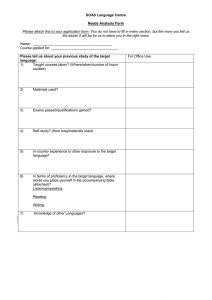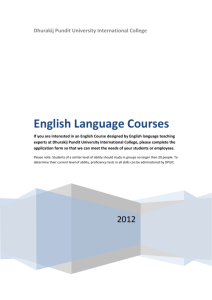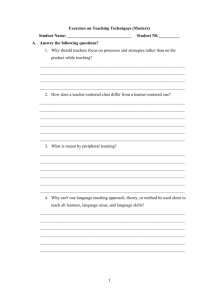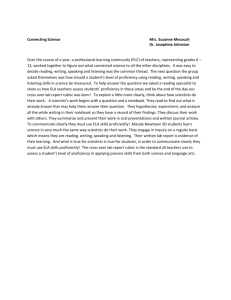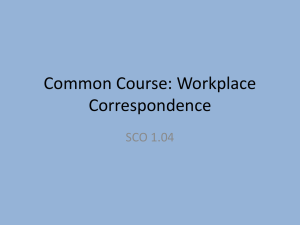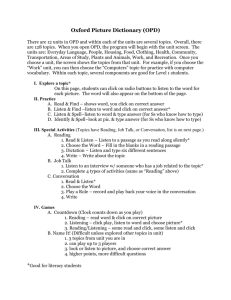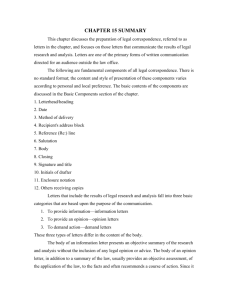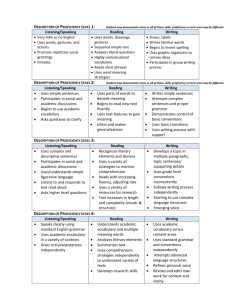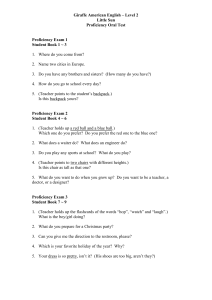Needs Analysis Form
advertisement
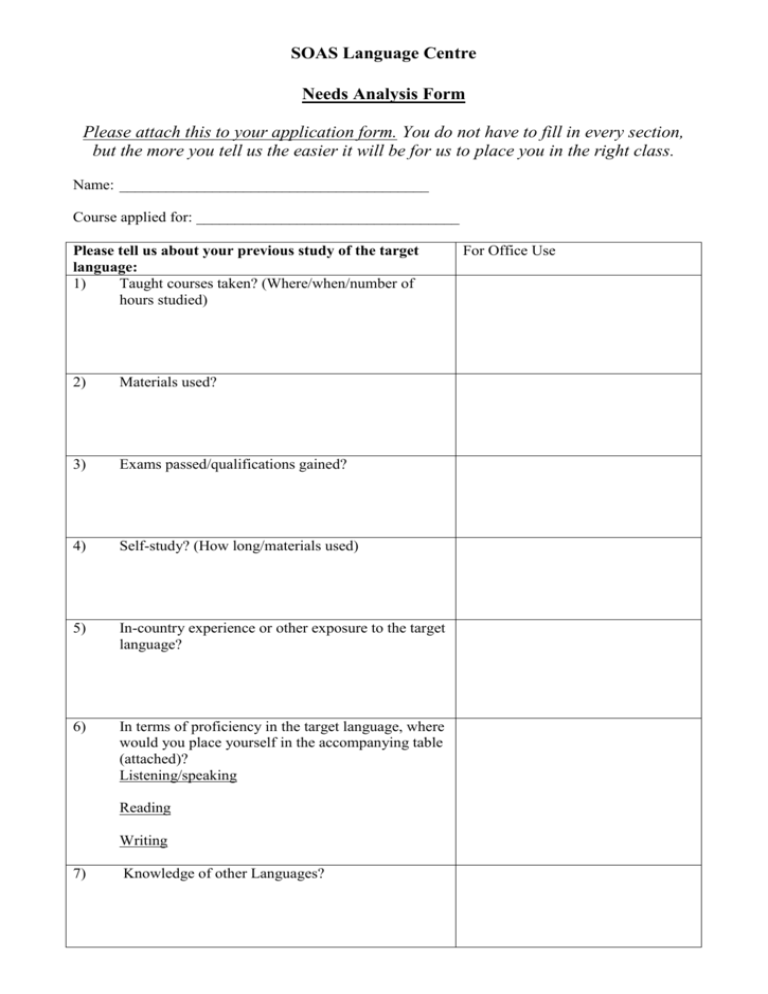
SOAS Language Centre Needs Analysis Form Please attach this to your application form. You do not have to fill in every section, but the more you tell us the easier it will be for us to place you in the right class. Name: ________________________________________ Course applied for: __________________________________ Please tell us about your previous study of the target language: 1) Taught courses taken? (Where/when/number of hours studied) 2) Materials used? 3) Exams passed/qualifications gained? 4) Self-study? (How long/materials used) 5) In-country experience or other exposure to the target language? 6) In terms of proficiency in the target language, where would you place yourself in the accompanying table (attached)? Listening/speaking Reading Writing 7) Knowledge of other Languages? For Office Use Please tell us about your objectives in taking the course: 1) Which level of proficiency are you hoping to achieve? Please see accompanying table (attached). 2) Which of the 4 skills (speaking/listening/ reading/writing) are you most keen to improve? 3) For what kind of situations and purposes do you wish to use the target language? 4) Do you have professional reasons for studying the target language? If yes, say how you might use the language in your work. 5) Do you have social and/or personal reasons for studying the target language? If yes, please specify. 6) How do you think you learn best? Language Proficiency Levels LEVELS C2 Level 5 C1 Level 4 B2 Level 3 B1 Level 2 A2 Level 1 A1 ALTE breakthrough level Listening/Speaking Reading Writing CAN advise on or talk about complex or sensitive issues, understanding colloquial references and dealing confidently with hostile questions. CAN understand documents, correspondence and reports, including the finer points of complex texts. CAN write letters on any subject and full notes of meetings or seminars with good expression and accuracy. CAN contribute effectively to meetings and seminars within own area of work or keep up a casual conversation with a good degree of fluency, coping with abstract expressions. CAN read quickly enough to cope with an academic course, to read the media for information or to understand nonstandard correspondence. CAN prepare/draft professional correspondence, take reasonably accurate notes in meetings or write an essay which shows an ability to communicate. CAN follow or give a talk on a familiar topic or keep up a conversation on a fairly wide range of topics. CAN scan texts for relevant information, and understand detailed instructions or advice. CAN make notes while someone is talking or write a letter including non-standard requests. CAN express opinions on abstract/cultural matters in a limited way or offer advice within a known area, and understand instructions or public announcements. CAN understand routine information and articles, and the general meaning of nonroutine information within a familiar area. CAN write letters or make notes on familiar or predictable matters. CAN express simple opinions or requirements in a familiar context. CAN understand straightforward information within a known area, such as on products and signs and simple textbooks or reports on familiar matters. CAN complete forms and write short simple letters or postcards related to personal information. CAN understand basic instructions or take part in a basic factual conversation on a predictable topic. CAN understand basic notices, instructions or information. CAN complete basic forms, and write notes including times, dates and places.
